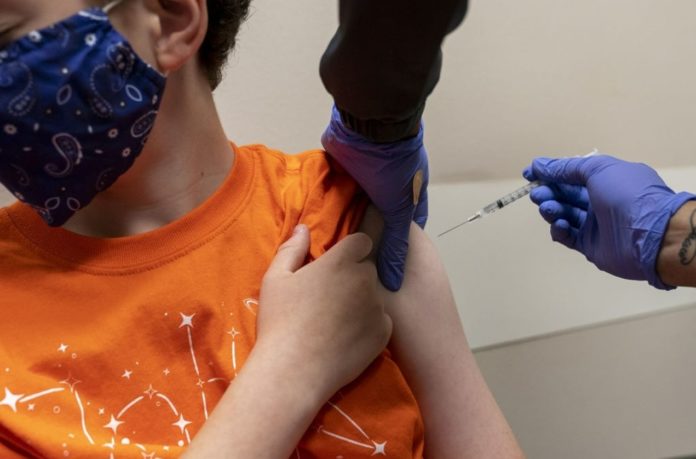Why US parents are reluctant to vaccinate their children, even if they are vaccinated.
Children accounted for one-fourth of COVID-19 cases in the United States in September 2021. The most effective strategy to limit illness load and ensure a safe return to in-person schooling and other social activities is to vaccinate children against COVID-19.
National polls demonstrate that even when parents are vaccinated, they are hesitant to vaccinate their children.
In a national sample of US parents, the researchers examined parental intention to vaccinate their children as well as relevant sociodemographic characteristics.
In March 2020, the CHASING COVID study, a countrywide cohort study, was initiated to learn more about how the SARS-CoV-2 pandemic has affected communities across the United States.
Residents of the United States aged 18 and up were contacted and consented to participate in the study over the internet. The cohort keeps track of COVID-related exposures, outcomes, vaccine uptake, and other behavioral characteristics across time. The results of the June 2021 survey round were evaluated.
Parents of children aged 2 to 17 years were asked if they will vaccinate their children as soon as they become eligible (yes/ no). In addition, parents of children aged 12 to 17 years old were asked about their children’s immunization status (vaccinated/unvaccinated). Parents’ vaccination hesitation was classified as “vaccine hesitant” (they said they would delay or never obtain the COVID-19 vaccine) or “vaccine willing/vaccinated” (vaccinated or willing to vaccinate immediately).
For parental vaccine reluctance, responses from prior survey rounds were utilized to replace missing values in the June 2021 survey.
Tests were used to assess vaccine-willing and vaccine-hesitant parents’ intention to vaccinate their children immediately, with statistical significance determined as a 2-sided P<.05. Multivariable logistic regression models were used to examine the sociodemographic and behavioral predictors of children’s vaccination intentions.
The study comprised 1162 parents (mean [SD] age, 40.6 [15.3] years) and 1651 children age between 2 to 17 years. In June 2021, 842 parents (74.4 percent) had either been vaccinated or were eager to be vaccinated, while 298 (25.6 percent) were vaccine hesitant.
According to reports, 212 children (48 percent) aged 12 to 15 years and 135 (58 percent) aged 16 to 17 years received at least one dose of the COVID-19 vaccination (Figure).
When compared to vaccine-hesitant parents, vaccine-willing/vaccinated parents were more likely to have already vaccinated their eligible children or intended to immediately vaccinate them when they became eligible (64.9 percent vs 8.3 percent for children aged 2-4 years; 77.6 percent vs 12.1 percent for those aged 5-11 years; 81.3 percent vs 13.9 percent for those aged 12-15 years; and 86.4 percent vs 12.7 percent for those aged 16-17 years; all P 10 percent of vaccine-willing/vaccinated parents would not vaccinate their children right away.
Concerns about vaccine-related long-term harmful effects in children were the most cited reason for reluctance.
Black and Hispanic parents were less ready to vaccinate their children immediately when compared to non-Hispanic White parents who were women, younger, and did not have a college education.
Parents of school-aged children expressed a greater inclination to vaccinate their children if their children currently attended school partially or entirely remotely rather than entirely in person.
Parents who had previously been infected with COVID-19 or who knew someone who died from COVID-19 expressed a greater desire to vaccinate their children.
The study’s limitations include social desirability and recall bias as a result of self-reported replies, as well as limited generalizability to the US population.
Parental vaccine hesitancy is a huge concern for schools that are restarting in-person instruction, which may demand regular testing, mandatory mask-wearing, and physical distancing for reliable working.
Parental reluctance to vaccinate their children against COVID-19 varies according to parental race and ethnicity, gender, education level, previous experience with COVID-19, and the child’s age.
Unsurprisingly, parents who were reluctant to be vaccinated themselves were also reluctant to vaccinate their children; nonetheless, several vaccinated parents voiced concerns about vaccinating their children.
Source: doi:10.1001/jamapediatrics.2021.5153
Image Credit: Getty
You were reading: US Parents’ Intention to Vaccinate Their Kids Against COVID-19 – Report
